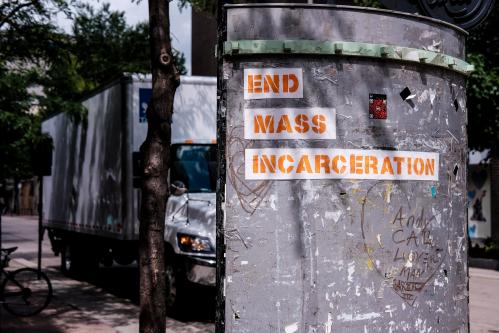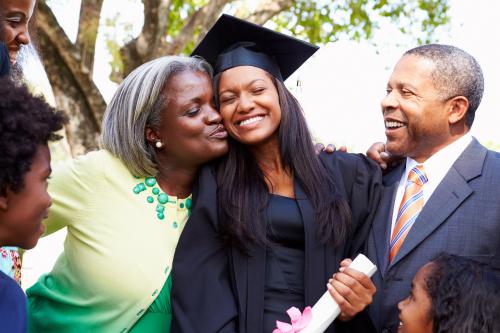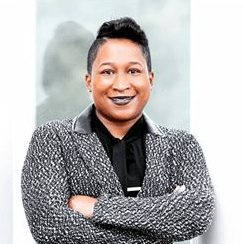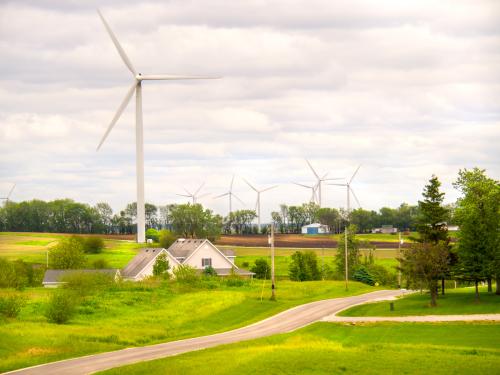Pride Month, which comes to an end this week, is a time to celebrate the moments in queer history that sparked activism and progress toward equality. But one piece of history that frequently gets lost is the fact that many of these defining moments were only made possible by Black and brown LGBTQ+ activists fighting for their liberation. As Black and brown people, their marginalization was furthered by their sexual orientation, causing violence, discrimination, and oppression toward them with respect to income, employment, housing, education, political representation, access to health care, and other public and private services. Their fight for liberation and equality has been whitewashed out of much of the history of the LGBTQ+ rights movement.
Each historical era determined not only how Black and brown people who identify as gay lived, but also what they risked losing by revealing their sexual preference or identity. The first national gay rights organization, the Mattachine Society, was founded in Los Angeles in 1950. Within two years of its founding, the Society turned its attention to fighting police abuses of the Chicano community and police entrapment, wherein police officers would flirt with, coerce, or even sexually assault suspected homosexual men, then arrest them for “lewd and dissolute” behavior.
The first LGBTQ+ Pride was the commemoration of the one-year anniversary of the Stonewall riots, which served as a catalyst for the LGBTQ+ movement for civil rights in the United States and around the world. Fifty-two years ago, in the early hours of June 28, 1969, New York City police violently raided the Stonewall Inn, a popular gay bar, and hauled off employees and patrons—a majority of whom were Black or brown.
The raid led to six days of protests, largely led by Black LGBTQ+ women. It was reported that Storme’ DeLarverie—a gay rights activist and “male impersonator”—threw the first punch at the riot. Marsha P. Johnson was an activist and self-identified drag queen who advocated for trans people, homeless people, sex workers, people living with HIV/AIDS, and incarcerated people; she led protests and riots demanding civil rights for gay people in the days following the raid on Stonewall. Together with Sylvia Rivera—who, at only 17 years old, was already a seasoned activist with the Black liberation movement—Johnson founded Street Transvestite Action Revolutionaries (STAR) in 1970 to provide safety and shelter to homeless LGBTQ+ youth. Another leader in the Stonewall riot, Miss Major Griffin-Gracy—went on to direct the Transgender Gender-Variant & Intersex Justice Project, a San Francisco-based nonprofit.
This month also marks the 40th anniversary of the first reported AIDS case in the U.S. On June 5, 1981, the Centers for Disease Control and Prevention (CDC) released a report describing “pneumocystis pneumonia” in previously healthy gay men in Los Angeles. By the end of that year there were 270 reported cases and 121 deaths from severe immune deficiency—what would later be known as AIDS—among gay men.
In 2020, according to UNAIDS estimates, 37.6 million people globally were living with HIV and 34.7 million people had died from AIDS-related illnesses. The epidemic has disproportionately affected Black Americans, who represent 12.4% of the U.S. population but account for 43% of HIV diagnoses, 42% of people living with HIV, and 44% of deaths among people with HIV. Over 290,000 Black Americans with stage 3 HIV (AIDS) have died since the epidemic began.
Today, groups like the Reclaim Pride Coalition, in the home of the Stonewall Inn, are attempting to reclaim the movement’s original purpose. Corporations have increasingly used their money to influence Pride marches, but such corporate presence or rainbow Twitter handles without corresponding policy support is façade for lack of institutional change. Despite recent victories at the Supreme Court for employment law, junior and nonsupervisory staff still struggle to live openly in their workplace for fear of reprisal or being passed over for promotion. One in five trans people are denied housing applications, and one in 10 are evicted because of their gender identity. Trans women still report disproportionate harassment and brutalization by police. Queer youth are overly incarcerated, and, on the inside, 15% of gay and bisexual boys and 9% of lesbian and bisexual girls report adult staff engaging them in sexual contact.
Lesbian, gay, bisexual, and transgender people have been and continue to be at the center of Black, indigenous, and other people of color movements. Queer folks of color have intersecting identities that make studying their experiences deeply meaningful for the entire community. Pride month is a celebration of our progress—but must also be an acknowledgement of the work that still needs to be done.







Commentary
The Black and brown activists who started Pride
June 29, 2021